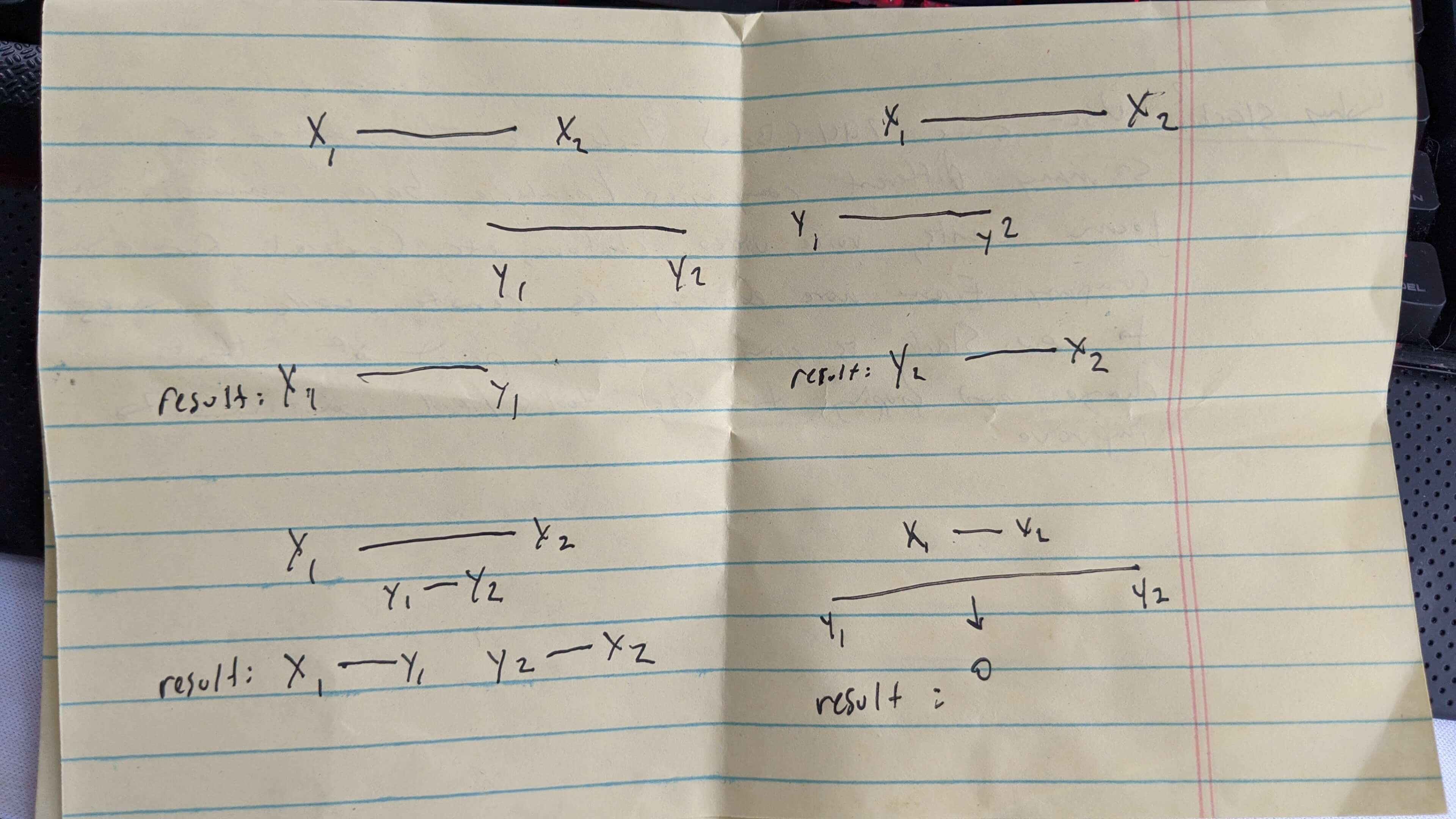 Remove Interval
Remove Interval
November 16, 2020
I’m trying to get in a habit of starting my mornings off with coffee and a Leetcode problem before work. Ease my way into the day and get the brain juices flowing. Let’s jump in!
Given a sorted list of disjoint intervals, each interval intervals[i] = [a, b] represents the set of real numbers x such that a <= x < b.
We remove the intersections between any interval in intervals and the interval toBeRemoved.
Return a sorted list of intervals after all such removals.
Example 1:
Input: intervals = [[0,2],[3,4],[5,7]], toBeRemoved = [1,6]
Output: [[0,1],[6,7]]
Example 2:
Input: intervals = [[0,5]], toBeRemoved = [2,3]
Output: [[0,2],[3,5]]
Example 3:
Input: intervals = [[-5,-4],[-3,-2],[1,2],[3,5],[8,9]], toBeRemoved = [-1,4]
Output: [[-5,-4],[-3,-2],[4,5],[8,9]]
Constraints:
1 <= intervals.length <= 10^4
-10^9 <= intervals[i][0] < intervals[i][1] <= 10^9
We’re given a pre-sorted input and expected to return a sorted output, so as long as we don’t mess up the order as we process, we won’t have to do any sorting ourselves.
We need to make sure our checking handles a <= x < b correctly and not <= on the upper bound.
This feels like an O(N) traversal of the intervals to process those that overlap with the removal bounds. When they overlap, return the interval delta or “split” if the removal generates two separate intervals. Also need to consider the case when the removal overlaps the entire interval being processed so it’s fully dropped.
Overlapping number ranges is a visual problem (for me) so I drew up this diagram covering the four cases I was thinking about on the back of some scratch paper.

I don’t think I missed any this time.
With some more thought, I think I can reduce the number of comparisons made as we have some duplication between checking for any overlap and checking which it is.
class Solution:
def removeInterval(self, intervals: List[List[int]], toBeRemoved: List[int]) -> List[List[int]]:
def process(x1, x2, y1, y2):
if x1 <= y1 and x2 < y2: # Removal overlaps right side
return ((x1, y1),)
if y1 <= x1 and y2 < x2: # Removal overlaps left side
return ((y2, x2),)
if x1 <= y1 and y2 < x2: # Removal overlaps inside
return ((x1, y1), (y2, x2))
return tuple() # Removal overlaps entire
result = []
rlo, rhi = toBeRemoved
for interval in intervals:
lo, hi = interval
if lo <= rhi and rlo <= hi: # Check for any overlap
result.extend(process(lo, hi, rlo, rhi))
else:
result.append(interval)
return result
Runtime: 368 ms, faster than 89.39% of Python3 online submissions for Remove Interval.
Memory Usage: 20 MB, less than 75.98% of Python3 online submissions for Remove Interval.